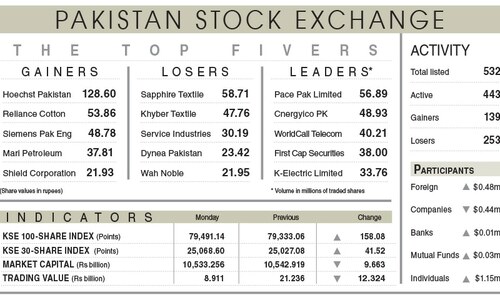RIYADH, Feb 7: From peak oil to peak demand, the crude world has now traversed the full distance.
Amidst a rapidly falling oil consumption, under global focus now is the issue of peak demand.
The peak oil movement gained momentum while oil prices were rising. Now that they have collapsed, some seem convinced the oil demand hit its highest point last year in developed economies - never to return.
Proponents of this theory also seem pumped up by the commitment of some governments to support conservation and invest in new alternative energy.
“There is a reasonable likelihood that OECD oil demand has peaked,” Peter Davies, former chief economist at BP PLC, recently told Reuters.
Antoine Halff and Veronique Lashinski, energy analysts at the US brokerage, Newedge, say: “More and more analysts are sold on the idea that US oil demand peaked in 2007. The market meltdown is likely to entrench current demand losses not only in the US itself but in the world at large.”
And this realisation, coupled with the softening market, is beginning to take its toll - in more than one ways.
Opec now stands ready to make further output cuts in case crude prices continue to be subdued, as in the second quarter Opec expects an even deeper drop in demand.
“Opec is dealing with tough circumstances, the toughest in 10, if not 30 years,” believes Raad Al Kadiri of Washington-based PFC Energy.
Crude oil prices during the three months to the end of March, Merrill Lynch estimates, could bottom out at an average of just $43 a barrel. Other investment and industry analysts too, at Deutsche Bank and at the China National Offshore Oil Corporation are predicting an average price of $40, or even lower.
The above scenario, however, has another flip side too - and a scary one indeed!
At stake now are future projects. For Opec, and for international oil companies, low oil price naturally leads to significant cutbacks in expansion plans. Oil companies are keeping a “wait-and-see” stance. A number of projects are no more feasible. Investment has dropped, and keeping in view the gap of roughly 10 years between oil discovery and bringing it to market, this development definitely does not bode well for the industry.
In west Africa, termed by some as the next global oil frontier, the expensive “deep-water oil is now at risk of being deferred at current oil prices,” Nigerian Petroleum Minister of State Odein Ajumogobia warned an oil exploration conference in Abuja.
The IEA is also concerned. Low oil prices and the lack of global liquidity to finance new hydrocarbon exploration and production are causing concern about future supplies and prices.
“We hear almost every day about a project being postponed,” says IEA chief economist, Fatih Birol. “This is a major problem.”
The IEA maintains that the average oil price needs to be significantly higher to encourage the development of new fields that are more costly to exploit, such as Canada’s tar sands, Siberian oilfields and deep-sea offshore reserves, as well as the construction of much-needed new oil refineries. Estimates by Cambridge Research Associates point out that as much as four million barrels of future oil-production capacity could be jeopardised if prices remain below $60 a barrel. Other analysts say that figure could be even higher if the figure averages less than $50 a barrel.
Randy Ollenberger, managing director of oil and gas research at BMO Capital Markets, believes global oil supply could decline by as much as 20 million barrels a day over the next three years if the oil industry stops investing. This would dwarf a decline in demand of about 2.25 million barrels a day over the same period.
Around the world, he estimates, 40 to 50 new projects are vulnerable at today’s prices.
And all this is happening at a time when the Russian oil production is also experiencing a significant drop. Russian oil exports reportedly went down by 6.2pc over the previous year.
The tide is in for another transformation. Despite the lowering of raw material prices, especially steel, one is not witnessing a rush for rigs now that recession is eroding demand for fuel worldwide. Dan Lewis, research director at London’s Economic Research Council, believes an “oil crunch” is looming.
Jeff Rubin also predicts another oil spike to $100 a barrel toward the end of this year and into 2010, arguing that the recession may temporarily cut one or two million barrels a day from world oil demand, but will do nothing to stop the loss of nearly four million barrels per day this year from depletion alone.
We are entering unknown waters again - time to toll the warning bells indeed.















































Dear visitor, the comments section is undergoing an overhaul and will return soon.